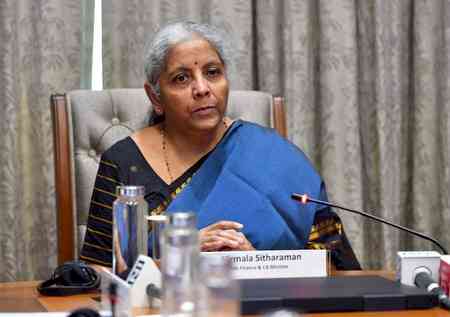Responding to a triple threat
How can Indian businesses mitigate risks from monsoon season and regional security concerns, amid the Covid-19 pandemic

Mumbai: As businesses with employees in India aim for a sustainable and safe return-to-work and business travel, International SOS highlights the layered risks of the North Indian cyclone and monsoon season. The resurgent threat of COVID-19 is complicating risk responses and businesses may also need enhanced diligence around underlying security issues that the pandemic environment will continue to exacerbate.
Disruptive weather conditions are expected, with the North Indian cyclone season likely to hit India, Bangladesh and Myanmar from August to October, and the peak of the North-west Pacific typhoon season due to hit the Philippines, coastal China and Japan. There is a risk of widespread damage in densely populated areas, as well as potential repercussions for security, such as increased social unrest and petty crime. This may challenge national disaster management capabilities, which are already heavily taxed due to the unprecedented scale of the COVID-19 pandemic.
Mr Udit Mehta Executive vice president global security solutions, South Asia, International SOS, said, “While organisations operating in India and South Asia, traditionally complex markets from a geo-political and health perspective have always accounted for crises and concurrent contingencies, the sheer scale of the COVID-19 pandemic has completely altered the status quo”.
“This week’s flooding in Mumbai is an apt representation of these exacerbated challenges, with seasonal and persistent risks such as natural disasters, political violence, civil unrest, terrorist attacks or even an industrial accident as Beirut witnessed, capable of completely offsetting months of gains in the COVID fight. Social distancing and other pandemic specific mitigation measures need to give way to other primary means of crisis response for authorities and private organisations alike to deal with flooding, industrial accidents, et al thereby amplifying an already extant risk scenario in addition to placing fresh strains on first responder infrastructure including hospitals and resources that are already stretched beyond capacity.”
“Triaging the pressures to deal with these crisis conundrums – or crises within a crisis – to Expert led Assistance organisations, pre-emptive planning including increased focus on Situational Intelligence and Analysis as opposed to buffering for Operational Response alone are some key mitigation measures that organisations need to implement urgently to build resilience”.
Dr Rahul Kalia, Medical Director at International SOS India, added, “With the unpredictable nature of these concerns, businesses must adopt a flexible and robust business continuity plan that accounts for the most pressing needs and concerns. Where businesses across the country might have previously relied on disaster relief agencies during weather hazards and other challenges, it will be more difficult this year due to flight restrictions, tight border controls and quarantine requirements that may vary from state to state. It will be difficult for countries to get timely assistance from national and international relief agencies or even volunteer medical workers. Additionally the monsoon related illnesses may accentuate the strain on the healthcare system which may already be running to capacity in many parts of the country in wake of the COVID-19 pandemic.”
“To circumvent these challenges, businesses should update their crisis management plans to account for the new concerns caused by COVID-19, keep all employees informed with the latest medical information and security advice wherever they are, and identify partners with the expertise to provide on-the-ground medical assistance and support whenever needed,” Dr. Kalia concluded.
International SOS, has shared five top tips on how businesses can stand ready to overcome these challenges:
1. Provide security awareness training to management and staff on the ground. Besides ensuring access to accurate and timely information of the on-ground environment, organisations need to educate and equip their workforce with necessary tools to mitigate their exposure to the security risks identified. This includes developing online courses on risk assessment, pandemic preparedness, and personal health and security, to ensure that their on-the-ground workforce knows the best course of action to take, should a security concern arise in their vicinity.
2. Develop appropriate responses to civil unrest and demonstrations. In many countries like India, Myanmar, and Indonesia, insurgencies and social protests are often ethnically driven or politically motivated. What businesses should focus on is how these volatilities could affect their business operations and mitigate these threats, instead of developing responses that interfere with these domestic concerns.
3. Consult with in-house security and legal experts to monitor implications of newly enacted legislations. In the case of the recent National Security Law in Hong Kong (SAR), organisations with a presence there should understand what the law entails, and how its implementation would impact their business operations and personnel. If necessary, organisations should also conduct profile and context-specific risk assessments for individual activities and employees based there.
4. Review existing response capacities to natural disasters. Organisations must be ready and able to track and ensure the safety of their workforce in affected locations, suspend operations at and travel to at-risk locations, and prepare contingency plans for disruptions to power and communications. The workforce should also be educated on the necessary supplies required for sheltering or evacuations from typhoons or cyclones, particularly food, water, personal protective equipment (PPE), sanitiser and disinfectants and how to maintain safe distancing during this time.
5. Prepare medical assistance and support whenever needed. Organisations have to ensure that offices have sufficient medical kits available for emergency situations and identify employees that are trained to provide first aid support if necessary.
These tips were also shared in a live webinar organised by International SOS, which featured a panel of country security experts in the region who provided timely updates and advice around the natural disasters hotspots and risk environments in Asia.
Businesses are not alone in their fight against the storms that lie ahead. Leveraging its medical and security expertise, as well as global assistance network, International SOS can help these businesses mitigate the risks arising from multiple crises and adapt to each situation in a flexible and safe manner, while strengthening overall business and workforce resilience, business continuity and sustainability.


 cityairnews
cityairnews 









